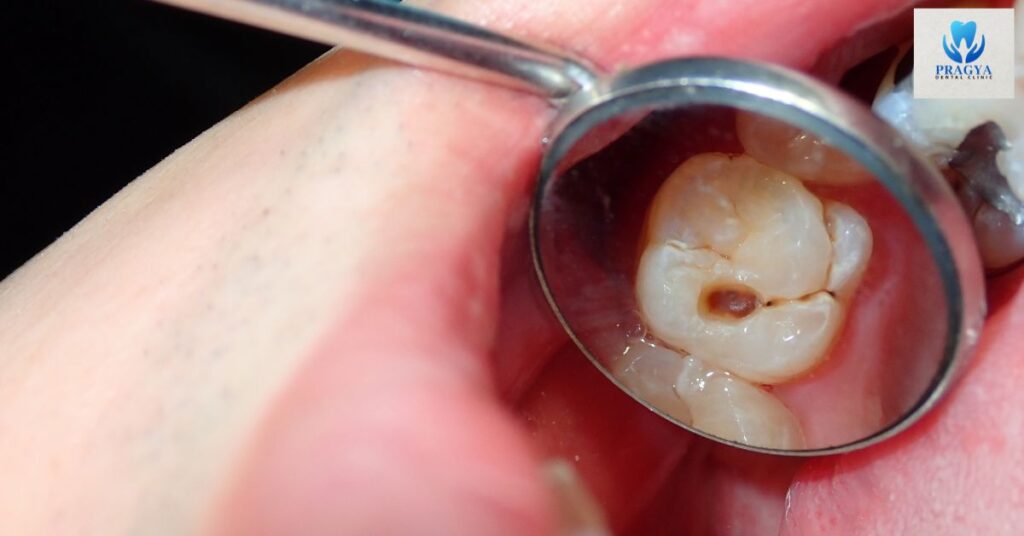Tooth cavities are one of the most common oral health issues, yet they remain widely misunderstood. A cavity is essentially a small hole in your tooth caused by decay, and if left untreated, it can grow into a much larger problem.
What Causes Cavities?
Cavities form when bacteria in the mouth convert sugars and starches from food into acids. These acids slowly wear away the protective enamel of your teeth. Over time, this erosion creates small openings or holes—cavities.
Risk Factors
- Poor oral hygiene habits
- Frequent snacking on sugary or starchy foods
- Not drinking enough water
- Dry mouth or reduced saliva flow
- Lack of fluoride in water or toothpaste
Symptoms to Watch Out For
- Tooth sensitivity, especially to hot, cold, or sweet foods
- Visible pits, holes, or dark spots on the tooth surface
- Toothache or pain while chewing
- Bad breath or foul taste in the mouth
How Are Cavities Treated?
In the early stages, cavities can often be treated with composite fillings, which are tooth-colored and blend seamlessly with your smile. For more advanced cases, root canal treatment or crowns may be necessary.
Prevention Tip: Brushing twice daily, flossing, reducing sugar intake, and regular dental checkups can significantly reduce your risk of cavities.

